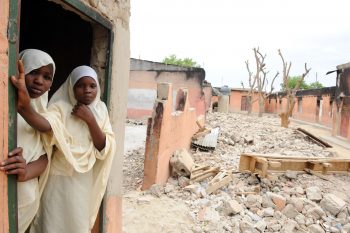
 July 9, 2013 • Analysis •
July 9, 2013 • Analysis •
The Sahel is currently facing a multifaceted crisis that has sparked the interest of the international community, especially within the European Union and for the United States. Nigeria and its Islamic insurgency led by Boko Haram in the north of the country might worsen the situation in the region by outflanking the borders, hence making the Sahel a lingering instable place in Africa. Although the Islamic insurgency in Nigeria is adamantly different from Al Qaida in the Islamic Maghreb (AQIM), there are some worrisome trends that could enhance their cooperation. The deteriorating situation shows that security and development approaches should be rethought at local, regional and international levels.
While the media and the international community seem to discover the complexity and the challenges posed by the Sahel in terms of security and development, many aspects of the Mali crisis have reflected the remaining multifaceted issues in the region. Northern Nigeria, and more broadly the entire country is another unstable state that needs to be focused on. Ten years after Boko Haram was created, the way the Government and security forces have tried to address the situation is an important signal of “what should not be done”. Bombing of the UN facilities in August 2011, allegedly hostage-taking in 2013, extensive communication skills developed through video tapes posted on Youtube, Boko Haram and Ansaru splinter groups are no beginners in the arena of violent extremism in the Sahel. Regarding the inability of the Nigerian Government to tackle this issue, how are international actors supporting the most populous African country currently facing a thorny situation that goes beyond national security? And how does that impact the region?
The European Union has established long-term relations with the Sahel, especially through those member-states that have important historical ties to the region (France, Spain, Italy for instance) but also via development assistance programs that have, however, shown their limits. For many reasons , the United States is becoming increasingly interested in the region although it is not America’s foreign policy and defense first priority. The American paradigm in the region has been mainly guided by security and military programs. Therefore, beyond counter-terrorism perspectives other features have to be taken into consideration. One remaining question (and three sub-questions) will shape our analysis: How will or could Boko Haram’s expansion affect the region? Is there a potential space for a larger black African jihadist perspective in the Sahel? Can the “civilization” rhetoric trigger broader conflicts? And finally, how will U.S. engagement impact other actors in the region?
